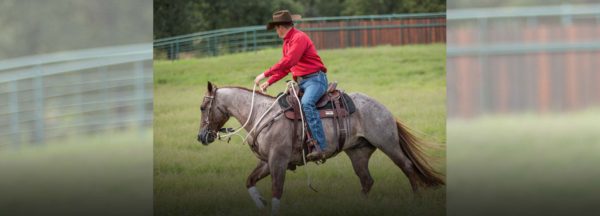Training Tip: When Your Horse Spooks, be a Leader

When they’re on the trail, a lot of people put their horse on a big, loose rein and let their mind wander or gab with friends. They put their horse on what I call “autopilot” – he’s left on his own, which for a lot of horses means they go down the trail constantly looking for something to spook at. Horses have the quickest reaction time of all domesticated animals, and if you let your horse wander down the trail without paying attention to him, if he spooks, you’re going to be in a wreck before you have time to react and regain control of the situation. I’m not telling you to be paranoid and go down the trail thinking that any little thing is going to set your horse off, but you need to constantly be reminding your horse to check back in with you. When I take my horses out on the trail, I bend them around trees, sidepass them over logs, two-track down the trail, practice bending transitions – anything I can think of to remind them to focus on me and stay soft and supple at the same time. Remember, if you don’t give your horse something positive to think about, he will naturally drift towards something you don’t want him to think about.
